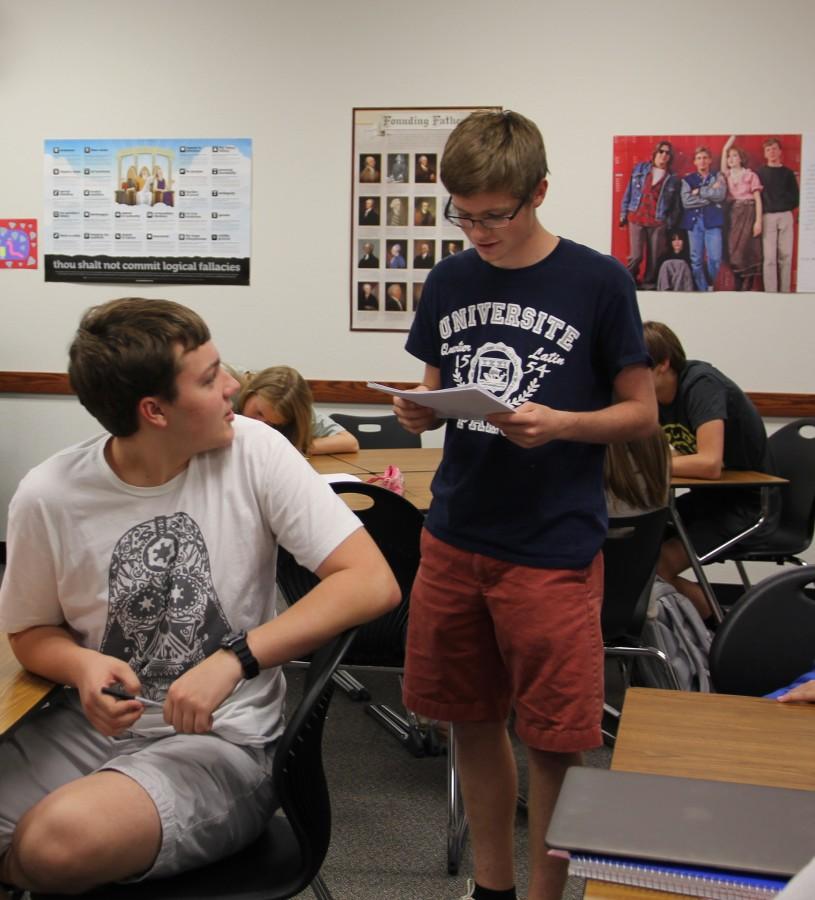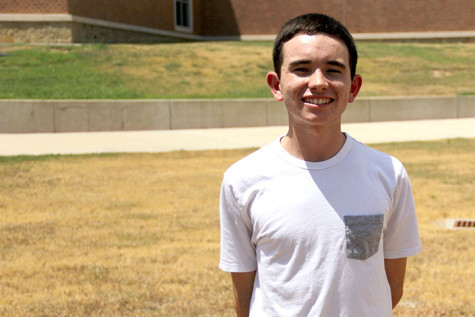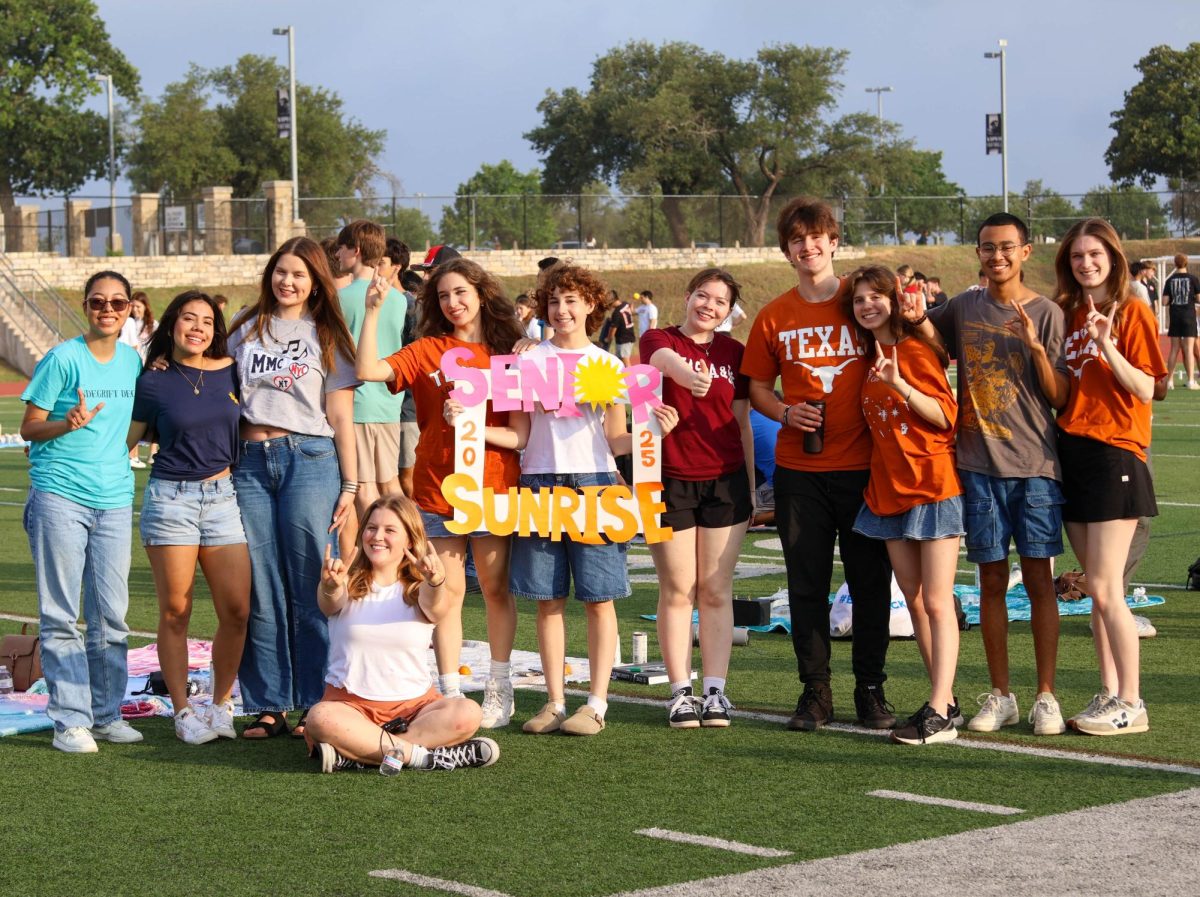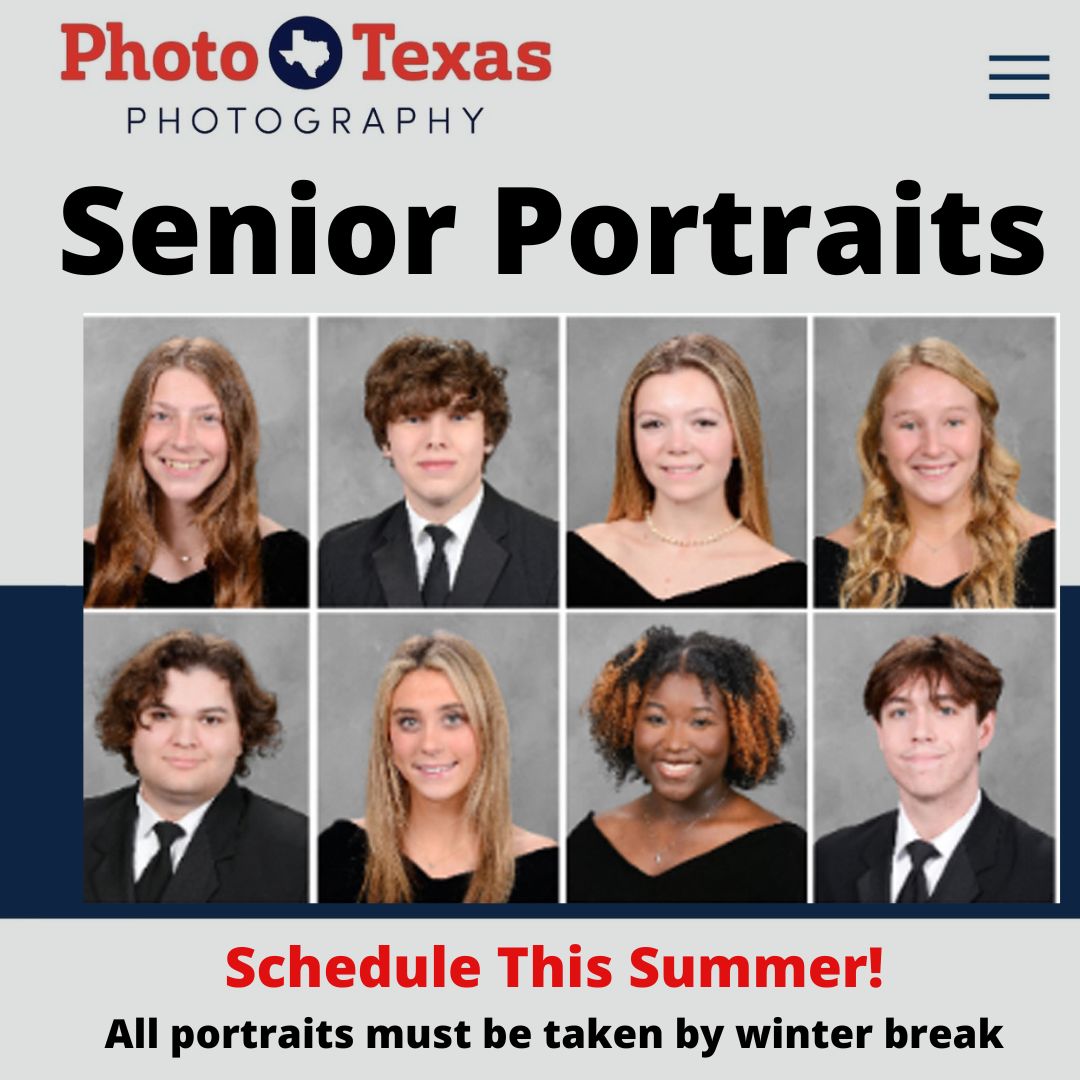U.S Government’s annual “Mock Senate” activity begins
Majority leader of the 4th Period Senate, Trevor Egerton, and Majority Whip, Brendan Hollaway, discuss where to send proposed laws for review,
October 5, 2015
The events in Washington over the past few days have done little to improve the reputation of Congress in the eyes of most Americans. After a long row over a spending bill that would allocate funding to Planned Parenthood nearly caused another government shutdown, the bill was passed only hours before the end of the fiscal year. Even worse, the bill only ensured funding until Dec. 11, merely delaying the debate for a few months. Few people were therefore surprised when on Sept. 25, after five years of surviving relentless challenges from his own party, Speaker of the House John Boehner resigned.
Given these recent happenings, one might be hard pressed to find someone who continues to be interested in politics. Nina Legg, the U.S. Government teacher for Vandegrift, is a member of that select group. For two years, Legg has organized a “Mock Senate” to teach her students on the inner workings of the federal government in a more interactive way.
“I wanted the classes to get an idea of the process of passing a bill,” Legg said. “Talking about it is not nearly as fun or informative as actually working it through committee.”
In the “Mock Senate”, students choose a senator and write a detailed report about their background and voting record, as well about the state they represent. The students must then write a bill that they believe the senator they picked would support. Then, in class, they attempt to get their bill passed, making edits if it gets rejected. Though students often choose senators whom they identify with politically, Legg doesn’t want their choices to be focused on their senator.
“I don’t want them to choose their senator based on ‘I think I’m a Democrat’ or ‘I think I’m a Republican’,” Legg said. “Rather, I would like them to think about a bill they would like to see passed and find a senator that supports it.”
Many current students are excited at the chance to play government official. Among those students is senior Emma Haigh-Hutchinson, who hopes to find a career in the government bureaucracy. Her bill, based on her choice of senator, Bernie Sanders, attempts to promote economic growth by increasing tax rates on the upper classes while keeping taxes on the middle class low.
“I want to one day work for the State Department and write educational law, so this is what I’m looking to go into,” Haigh-Hutchinson said. “It’s really interesting, for me at least, to get a look into how laws are made.”
Other students are not expecting to enter politics in the future, though they are still looking forward to the “Mock Senate”. Senior Brendan Hollaway, whose bill aims to establish national election day as a national holiday, is one of these students.
“[Politics] is definitely something I’m interested in,” Hollaway said. “However, I am more focused right now on being a computer scientist and electrical engineer.”
Though she has attempted to make the activity as authentic as possible, Legg admits that it is a rather brief overview of the Senate. She notes that students do not have to run their own campaigns, face pressure from constituents or experience serving on multiple committees. But overall, she feels like the “Mock Senate” is a good introduction with her limited resources.
“It gives an idea on what being a Senator is like,” Legg said. “Kind of like fantasy football gives an idea, but it’s not like being a coach.”
In the past, Legg has often been surprised by many aspects of her classes that are brought out by this activity. These include the political makeup of the Senate, which has never been strongly Republican, and is often Democrat, as well as the character of individual students. The greatest lesson she has taken from the mock Senate, though, is probably the appeal of politics.
“Students really like politics,” Legg said. “Even when they tell me they don’t, you get them in this activity, and that competitiveness comes out, particularly when you are talking about your ideals.”







